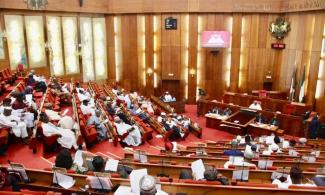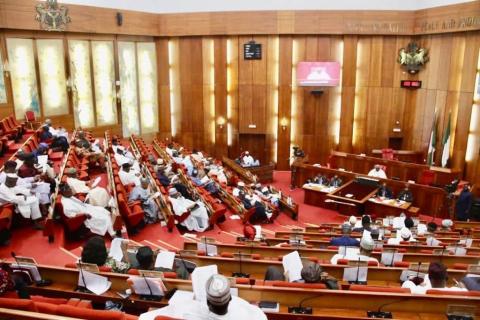
If the estimates proposed by the Senate are maintained in the bill that will be sent to President Muhammadu Buhari, the country will still spend more on servicing debts than building infrastructure.

The Nigerian Senate has increased the funds to be spent on capital projects in the 2020 budget from N2.14trn to N2.46trn.
If the estimates proposed by the Senate are maintained in the bill that will be sent to President Muhammadu Buhari, the country will still spend more on servicing debts than building infrastructure.
According to the spending plan presented by the Senate appropriation committee headed by Barau Jibrin, N2.73trn will be used to service borrowed funds.
Reuters reckons that Nigeria has so far made six trips to the Eurobond market, netting $2.86bn in its last outing.
The Senate increased the projected revenue that should come to the government from N8.18trn to N8.31trn, living a deficit of N2.28trn.
This deficit was created without any adjustments made to the oil benchmark and production volume, both were left at $57 and 2.18m barrels a day.
Overall, the Senate decided on a spending chest of N10.59trn, slightly below the N10.60trn approved by the House of Representatives on Wednesday.
In the country’s 2018-2019 spending plan, President Buhari noted that the government achieved just 58 per cent of its revenue projection.
The long-standing trend of revenue over-projection will continue on the oil axis unless Saudi Arabia ignores the country’s expressed intent to produce above its 1.744m barrels a day OPEC quota, or if it pumps out enough condensates to cover for the 440,000 barrels per day shortage.